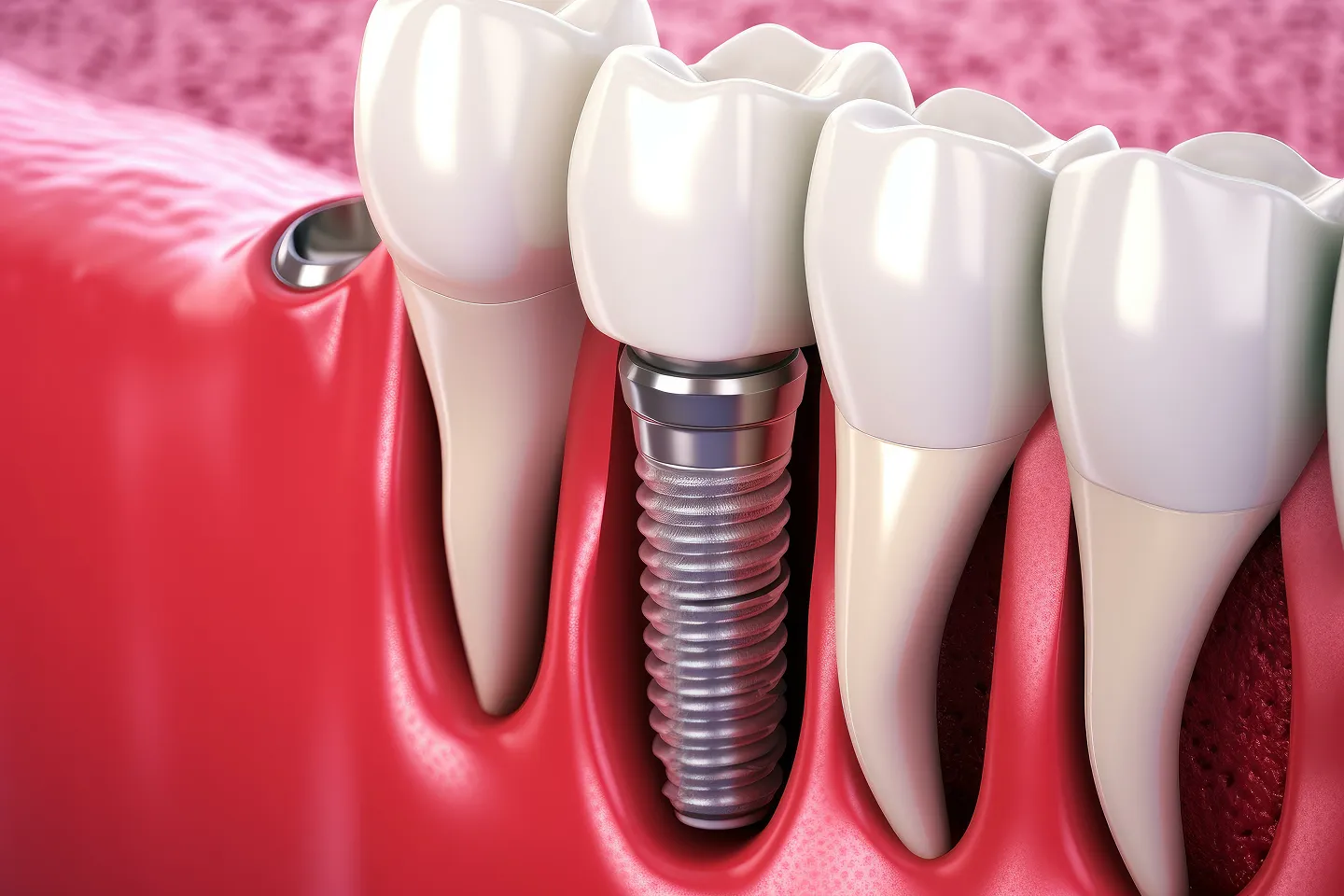Do Dental Implants Need Replacing? Why?
Yes. We estimate that 50% of dental implants fail within 10 years, and a small percentage of them will fail to integrate in the first place.
Patient Factors:
- Previous or existing gum disease (aka periodontal disease) often leads to accelerated bone loss around implants and early failure (within 10 years)
- Poor oral hygiene – plaque left around implant teeth often causes accelerated bone loss, infection, and early failure
- Smoking – patients who smoke have a much higher early failure rate. Smoking reduces the blood flow to the bone around the implants, and this causes accelerated bone loss and a higher risk of infection because the immune response to bacteria is much less.
- Heavy bite – patients who have a very strong/heavy bite and/or grind their teeth are more likely to suffer a dental implant fracture or dental implant crown fracture
Dentist Factors:
- Poor positioning of the implant by the surgeon
- Overheating of the bone during surgery
- Poorly designed crowns and bridges, which are difficult to clean
- Using cheap implants from manufacturers that have poor quality control
- Using cheap dental labs, which make crowns/bridges out of inferior materials
Can Failing Implants Be Fixed?
Yes, in many cases the bone loss which causes dental implants to fail can be stopped using a surgical procedure designed to arrest Peri-implantitis.
Often a failing implant can be given another 5+ years of service this way. Not all dentists are trained to carry out this procedure.
At Winning Smiles, we have training and experience with treating Peri-implantitis and have had good results over the last 10 years since we started offering this service.
What If My Failing Implant Can’t Be Fixed?
Where an implant has failed altogether we can usually replace it with a new one – often we need to use bone grafting to increase the bone volume to be sufficient to take the new implant.






.webp)
